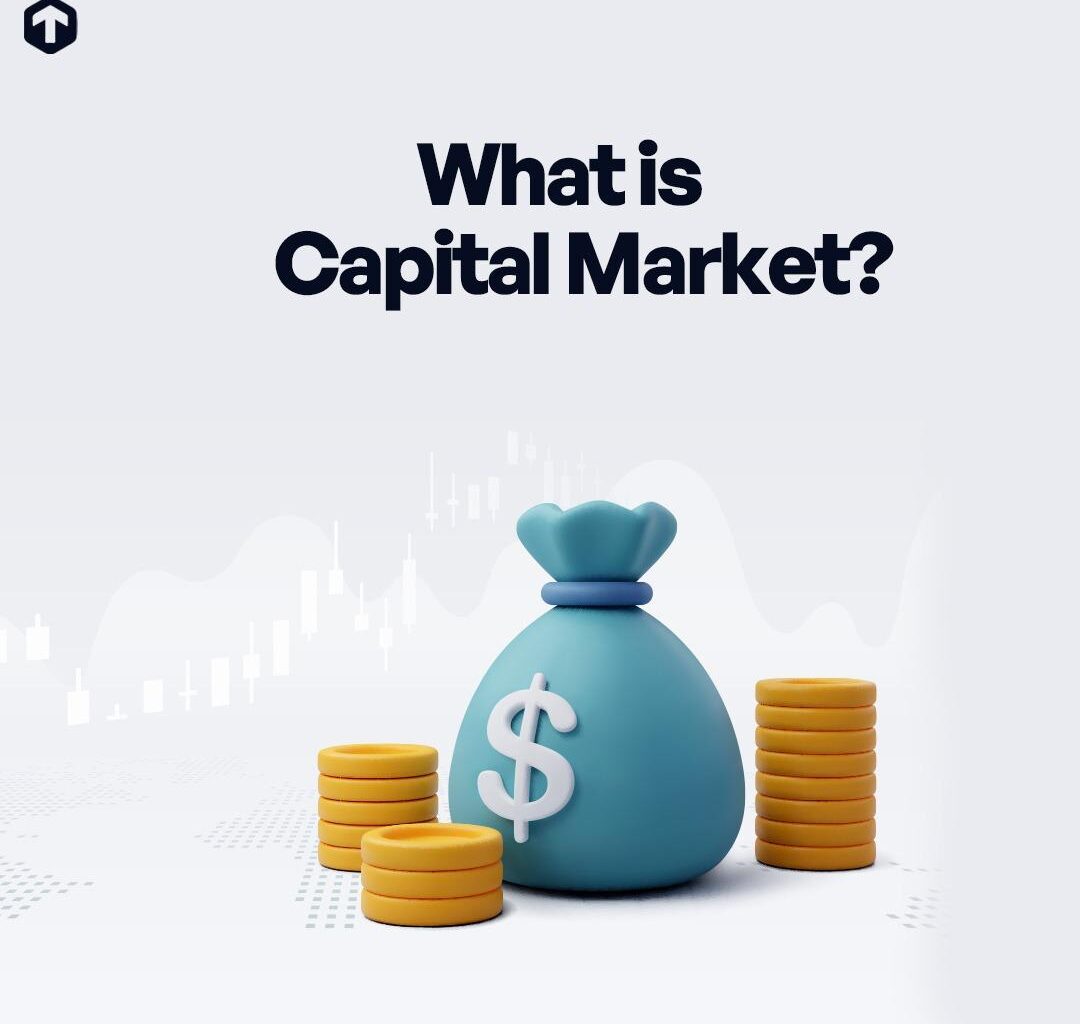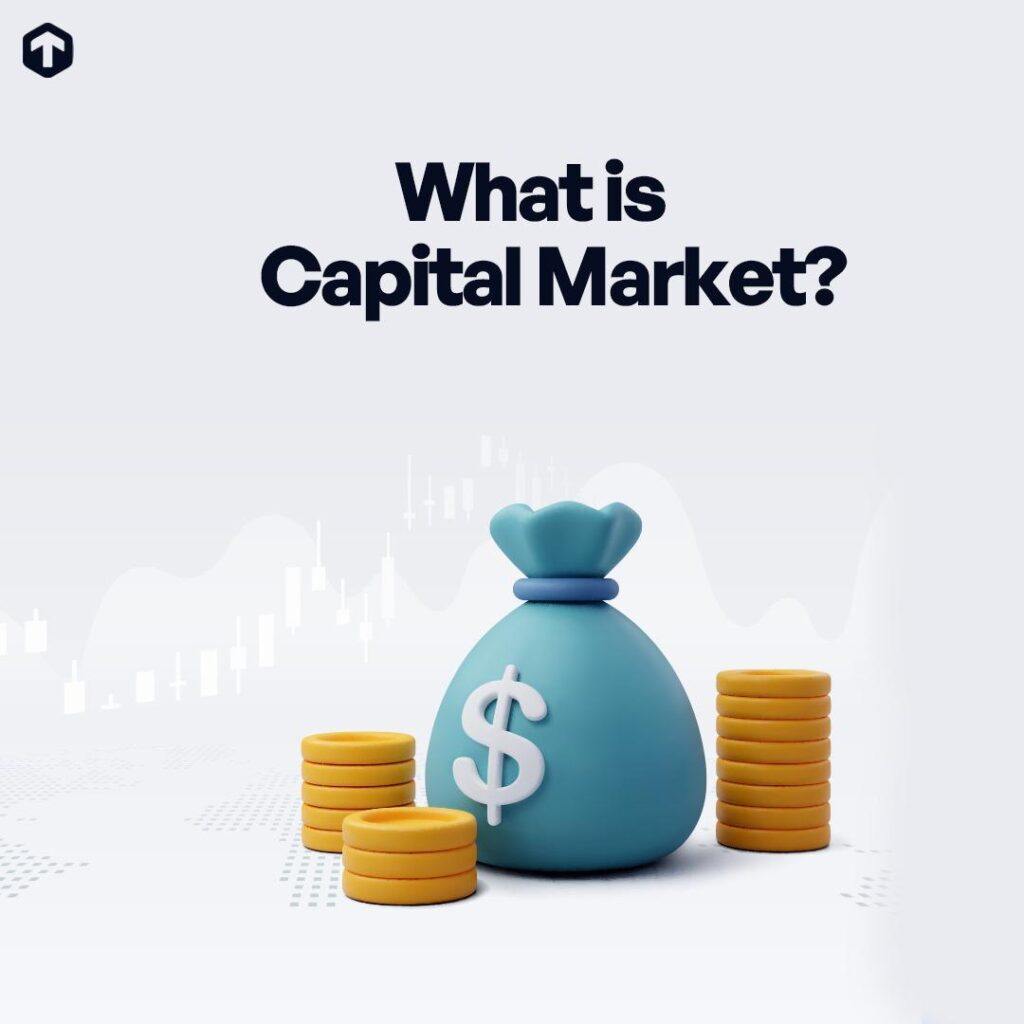Thinking about your financial future often leads to one key question: how can you grow your wealth? The capital market is one of the most effective ways to grow your wealth, but it can seem a bit difficult if you’re unfamiliar with it. But here’s the thing—understanding the capital market isn’t just for the experts. It’s for you, too.
In this blog, I will help you break down everything you need to know about the capital market, how it works, and how you can leverage it to meet your financial goals.
What is a Capital Market?
A capital market is a financial marketplace where buyers and sellers meet to trade long-term securities. These securities can include stocks, bonds, and other financial instruments that businesses and governments use to raise capital for various projects.
The capital market is essential because it provides companies with the funds they need to expand and develop their business while offering investors opportunities to earn returns on their investments.
In other words, the capital market is a bridge between those who need money to grow their businesses and those who have money and are looking for a place to invest it. This exchange of funds plays a crucial role in the economy, as it helps allocate resources efficiently, promotes economic growth, and contributes to wealth creation.
Types of Capital Markets
The capital market is categorised into two markets; the primary market and the secondary market. Each serves a unique purpose in the financial ecosystem.
1. Primary Market
The primary market is where new securities are issued and sold for the first time. When a company decides to go public by offering its shares to the public, this process occurs in the primary market. A well-known example of this is an Initial Public Offering (IPO).
During an IPO, a company sells shares directly to investors, raising funds that can be used to expand operations, pay off debt, or fund new projects.
For instance, imagine a Nigerian tech startup that’s ready to scale up its operations. To raise the necessary funds, the company might decide to issue shares to the public through an IPO. Investors who buy these shares will essentially be providing the company with the capital it needs to grow, while also gaining a stake in its future success.
2. Secondary Market
A secondary market is where you can buy and sell securities that have already been issued. Once securities have been issued in the primary market, they are then traded in the secondary market. Unlike the primary market, where the transaction occurs between the issuer and the investor, the secondary market involves trading between investors themselves.
The New York Stock Exchange (NYE), and the Nigerian Stock Exchange (NSE) are good examples of a secondary market. In these markets, investors can buy and sell shares of companies that have already gone public.
The prices of these shares fluctuate based on supply and demand, as well as the perceived value of the company. By participating in the secondary market, you have the opportunity to buy shares at a lower price and sell them at a higher price, potentially earning a profit.
Components of the Capital Market
1. Stock Market
The stock market is perhaps the most well-known component of the capital market. It’s where shares of publicly traded companies are bought and sold. When you buy a share of a company, you’re purchasing a small piece of ownership in that company. This entitles you to a portion of the company’s profits, usually in the form of dividends, and gives you the right to vote on important company decisions.
In Nigeria, the NSE is the primary stock exchange where such transactions occur. Companies like Dangote Cement, MTN Nigeria, and Guaranty Trust Bank have their shares listed on the NSE. By investing in these companies, you’re not only supporting their growth but also positioning yourself to benefit from their success.
2. Bond Market
The bond market is another critical component of the capital market. Bonds are essentially loans that investors give to corporations or governments in exchange for regular interest payments and the return of the principal amount at a later date. Bonds provide a fixed income and have a predefined maturity date.
For example, if the Nigerian government wants to build new infrastructure, it might issue bonds to raise the necessary funds. When you purchase these bonds, you’re lending money to the government, and in return, you’ll receive regular interest payments until the bond matures, at which point you’ll get your initial investment back.
3. Derivatives Market
The derivatives market deals with financial contracts whose value is derived from an underlying asset, such as stocks, bonds, or commodities. Common types of derivatives include options, futures, and swaps. These instruments are often used for hedging risks or speculating on future price movements.
For instance, a Nigerian farmer might use a futures contract to lock in the price of a crop he plans to sell in the future, protecting himself from the risk of price fluctuations. Similarly, an investor might use options to hedge against potential losses in the stock market.
The Role of Regulatory Bodies
To ensure the smooth functioning of the capital market and protect investors, regulatory bodies play a crucial role. In Nigeria, the primary regulatory body for the capital market is the Securities and Exchange Commission (SEC).
The SEC is responsible for regulating and overseeing the activities of the capital market, ensuring that companies comply with financial reporting standards, and protecting investors from fraudulent activities. You can think of the SEC as a watchdog that keeps the capital market in check. By enforcing rules and regulations, the SEC helps maintain investor confidence and ensures that the market operates fairly and transparently.
Importance of the Capital Market in Nigeria
The capital market is vital to the growth and development of the Nigerian economy. It provides businesses with access to long-term funding, which is essential for expansion and innovation. By raising capital through the issuance of stocks and bonds, companies can invest in new projects, create jobs, and contribute to the overall economic development of the country.
For you as an investor, the capital market offers opportunities to grow your wealth and achieve your financial goals. If you’re investing in stocks, bonds, or other financial instruments, the capital market provides a platform for you to earn returns on your investments.
Moreover, the capital market promotes transparency and good governance. Companies that are listed on the stock exchange are required to disclose their financial performance regularly, which allows investors to make informed decisions. This transparency helps build trust in the market and encourages more people to invest.
Read Also: Types of Taxes in Nigeria

Conclusion
Just like I said in this post, the capital market is like a bridge. On one side, you have companies and governments looking to raise money, and on the other side, you have people like you who want to invest and see their money grow. By understanding how this market works you’re setting yourself up to make smarter financial decisions.
You don’t need to be a financial expert to get involved. Just start with the basics – you can visit our Trovefinance to join the Trove University. Don’t forget, the more you learn about how things like stocks and bonds work, the more confident you’ll feel about investing. The Nigerian capital market, with its structure and regulations, offers a reliable space for you to invest.





